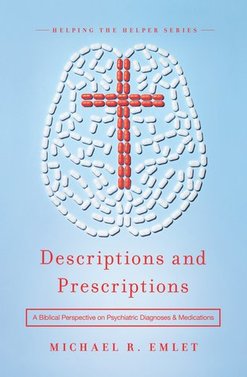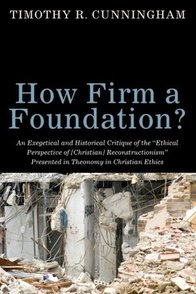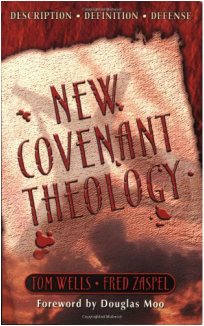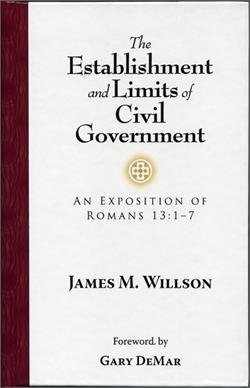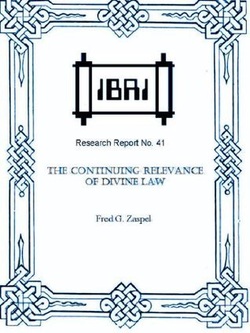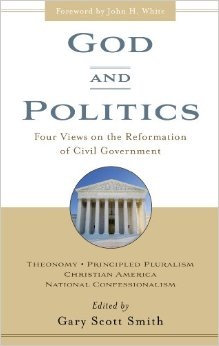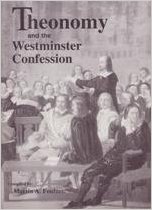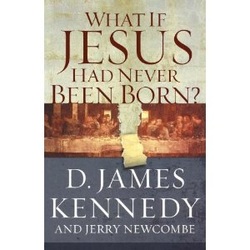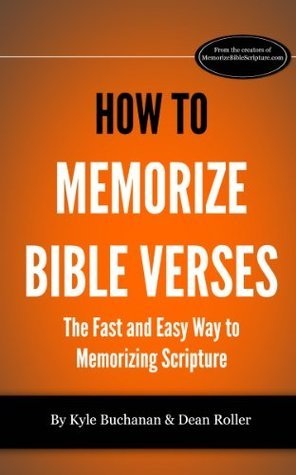Knowing which ones fall into which category is also dealt with. And the answer is that it really depends on the person, the abnormal behavior (whether it's depression, anxiety, hyper-activity, obsessive compulsiveness, mania, etc.). And the goal of course is to get to the root issue that is causing the abnormal behavior. Is it sin? Is it a chemical imbalance? Is it both?
How the person is treated depends on the answers to those questions.
Thankfully, Matt Perman does a wonderful job in sticking to the sub-title: "How the Gospel Transforms the Way you Get Things Done" (emphasis mine).
In other words, he doesn't neglect Ephesians 2:8-9 - we are saved by grace through faith - when teaching on Ephesians 2:10 - we are saved for good works. That's the foundation to the entire book. We are not saved by good works, but we are saved for good works.
If anyone has studied just a little on the subject of theonomy (the school of thought whose most controversial tenant is to follow consistently the Westminster Confession of faith and actually apply the teaching that the general equity of the judicial laws of Moses ought to be our standard and guide for civil government today - see Westminster Confession of Faith XIX.IV), then he or she would know that the the exegetical grounds of theonomy can be established from a various number of passages in Scripture - many in the New Testament (Rom. 3:31, 7:12; Gal. 5:14; 1 Tim. 1:8-11; 2 Tim. 3:16-17; Heb. 2:2; Jas. 1:25, 2:8-12).
However, I have a many concerns regarding this book's true value in unifying the church with fresh and faithful insights into the Word of God.
Book Review: The Establishment and Limits of Civil Government: An Exposition of Romans 13:1-75/27/2014
Written in the mid nineteenth century, the style was noticeably different from modern expositors. It was engaging; but you really have to be paying attention the entire time (i.e. this book is not one of those you can read with a toddler running around being all cute and cuddly and handing you things - you'll need to be in your study, alone).
And truly, they are! Paul says to us concerning the importance of the written word: "For whatever was written in former days was written for our instruction..." (Rom. 15:4). Likewise, when he was in prison and needed comfort, encouragement, and strength, what did he so strongly request that Timothy bring him, but written wisdom: "bring...the books, and above all the parchments" (2 Tim. 4:13).(1)
Each book is summarized briefly, followed by an analysis on the trilogy as a whole. WARNING: SPOILER ALERTS THROUGHOUT!
"But this book says nothing about Jesus..."
You're absolutely correct. The author does not bring this point up explicitly in the books (and for my part I really don't know what the author's worldview is or her understanding of who Jesus Christ is). But it comes out nonetheless, like it would in any dystopian work; and it would be good to point this out when reading it with others (especially your children). Whether it was intentional or not, I think it is very telling that Jesus Christ is not mentioned at all, or even anything resembling the idea of Christ's church. It is in this Christless world of Panem, where the Hunger Games take place, that we get a very good picture of what society truly is like when there is no restraining force of God on earth. Let's consider the story then...
When commentating on Romans 2 he advocates his position that the works of the law written on the hearts of the gentiles are simply “principles of righteousness” yet “independent of Mosaic legislation.” He does not prove this at all but simply asserts it. The apostle Paul knew how to say “principles of righteousness;” yet under the inspiration of the Holy Spirit he chose to say “works of the law.” In context of the passage and the readership of Romans I don’t know what else Paul could mean other than the Mosaic law. But apparently Zaspel has some insight into this text of which so many others throughout the history of the church are completely unaware.
Among those four views, with the exception of one (which will be explained later), they are all saying the same thing - the law of God is to be the very foundation from which all our modern laws are to be derived.
To [Israel] also, as a body politic, he gave sundry judicial laws, which expired together with the state of that people; not obliging any other now, further than the general equity thereof may require. What "the general equity thereof may require," of course, is something that needs to be understood in light of the historical, grammatical context in which the statement was written.
If the authors of the Westminster Standards truly believed that the penal sanctions of the civil aspect of the Mosaic Law had no abiding validity, then understood in today's English it would seem this statement invariably settles the matter. But did they actually believe that? And if not, what is meant by that statement? Book Review: What If Jesus Had Never Been Born? The Positive Impact of Christianity in History1/11/2014
In the introduction the book posits the problem: We live in an age in which only one prejudice is tolerated -- anti-Christian bigotry. … Today, the only group you can hold up to public mockery is Christians. … But the truth is: Had Jesus never been born, this world would be far more miserable than it is.
But a sad truth it is. The truth that fallen man, no matter how intelligent, how idealistic, how “good”-intentioned, how perceptive, or even how super, man is not and cannot be the savior, either of himself or anyone else. And in one of the most creative forms of depicting this reality, the story that Watchmen tells is fantastic.
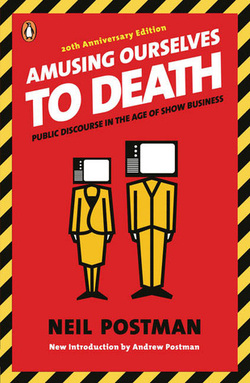 A Paradigm Shift in Our Understanding of Communication Although there's definitely a temptation for us to amuse ourselves to death with things that have always had the intent of amusement (sitcoms, dramas, sci-fi, fantasy, etc), Neil Postman has nothing bad to say about "junk television" (as it's called in the introduction). Rather, his very compelling argument is that we're turning into a society that will amuse itself to death because our capacity to comprehend and act on things is transforming into one that only operates on amusement itself. In other words, it's not that we make things for the sake of amusement that will hurt us, it's that we now make everything - even things that are not meant to be amusing - into a venue of entertainment.(1) While originally published in 1985, I sincerely think this book is just as relevant today (in the age of Google, Youtube, Facebook, and Twitter)* if not even more so than when it was first penned. Postman takes the reader through the history of our mediums of communication and shows (and I mean, really shows from history) that when our culture of communication started to turn from the printed word to visual images, our capacity to think through things cogently had started to drop significantly. Our attention span has taken a terrible plummet. And even our humanity has been desensitized to a degree. Of all the wicked heresies and threatening movements facing the church in our day, when Westminster Seminary finally organized their faculty to write something in unison, they gave their determined political efforts: not to fight socialism, not to fight homosexuality, not abortion, not crime and mayhem in our society, not subjectivism in theology, not dispensationalism, not cultural relativism, not licentiousness, not defection from the New Testament, not defection from the Westminster Confession of Faith, all of which are out there, and they could give their legitimate efforts to. Boy the thing they had to write about - was Theonomy! 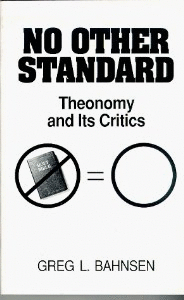 The Emperor Has No Clothes...still! In 1973, Greg Bahnsen graduated from Westminster Theological Seminary (Philadelphia, PA) with two Master’s degrees (M. Div, Th.M.). His thesis, approved by the overseeing faculty, was “The Theonomic Responsibility of the Civil Magistrate,” in which he set out to establish the theological premise that unless otherwise indicated by further revelation from God Himself, God’s law, including the civil penal sanctions, has moral abiding validity. From the encouragement of his professor John Frame, he reworked this thesis so that it could be published as a book. In 1977 it was published as Theonomy in Christian Ethics. You can see my review for that work here. In 1990 a book titled Theonomy: A Reformed Critique was published as a joint venture from the faculties at both Westminster Theological Seminaries (Philadelphia, PA and Escondido, CA) to establish a “Reformed answer” to Greg Bahnsen’s work (it took 17 years - from the date of his thesis - to formulate a “response”). In 1991, Bahnsen himself responded to their “critique” with this book, No Other Standard. If you’ve ever wondered if there were any gaping holes in the Theonomic perspective of theology, this book will settle the matter. In his normal fashion, Bahnsen applies the doctrines of Scripture with rigorous logical skill to show that God’s Word must be our standard in all matters of life - including politics and socio-political ethics. |
Categories
All
|
